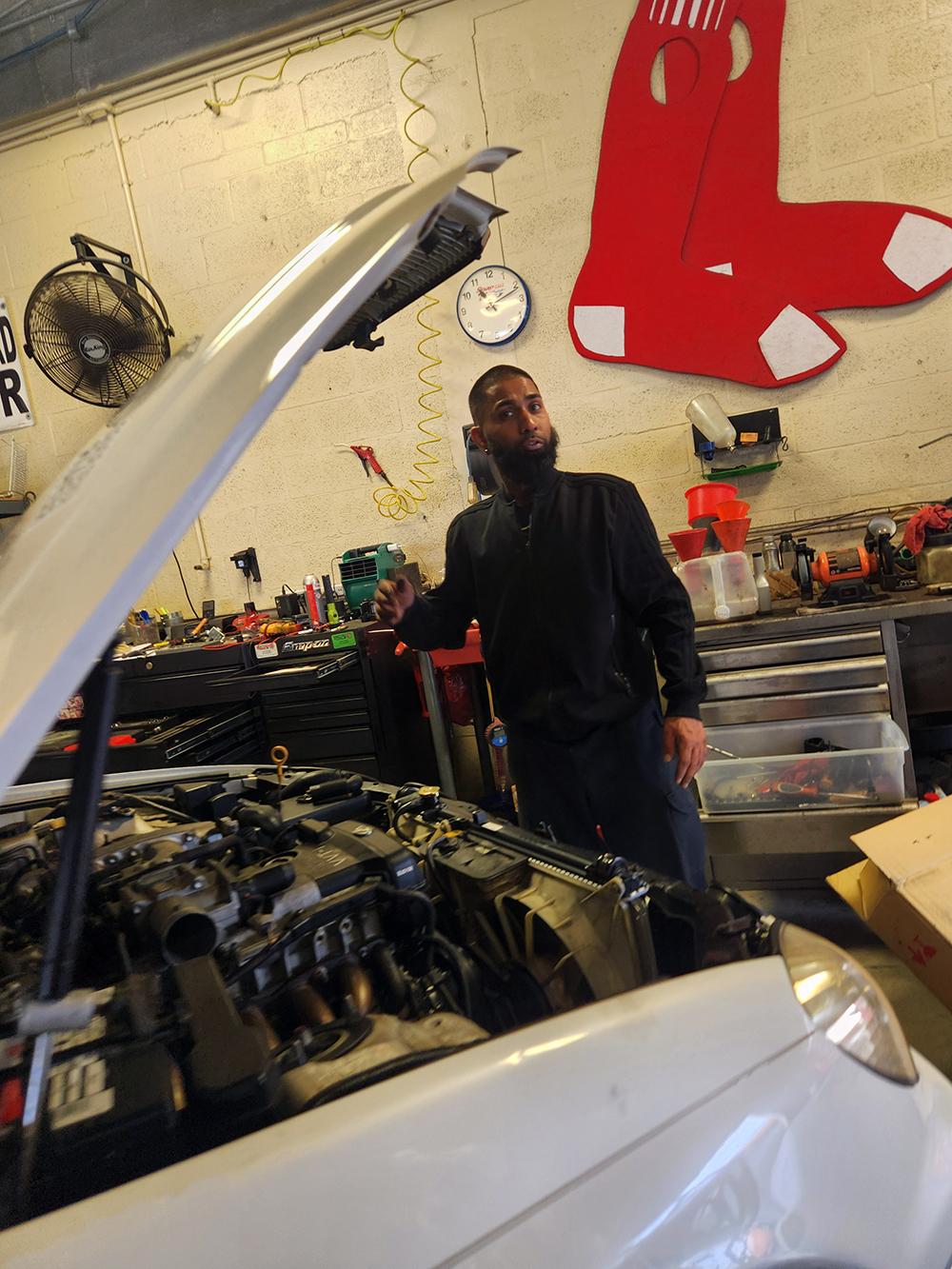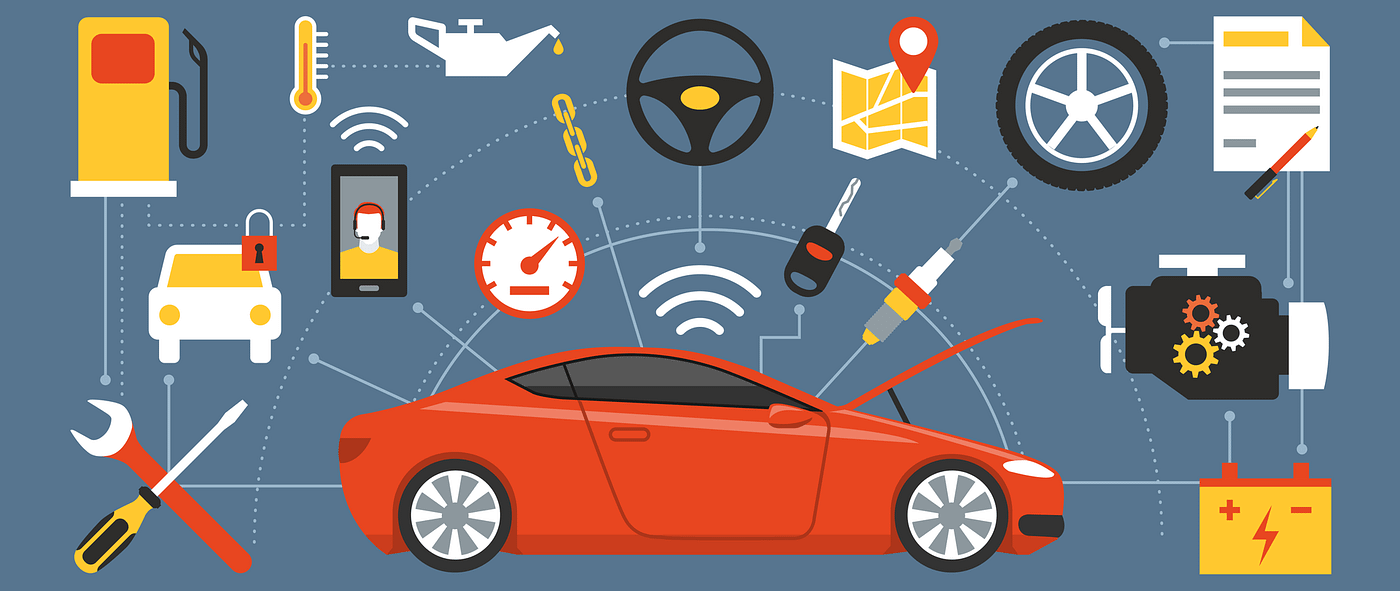All Categories
Featured
Liable for integrating the rotation of the crankshaft and camshaft, the timing belt ensures the engine's shutoffs open and close at the right times during the combustion procedure. If the timing belt stops working, it can result in extreme engine damages.
What Is a Timing Belt? The timing belt is a long, toothed rubber or composite belt that connects the crankshaft to the camshaft(s) in an interior combustion engine. Its task is to keep the engine's valves and pistons in sync, making sure the engine runs effectively. The timing belt likewise controls various other important engine features like the water pump and the power guiding pump, depending upon the car.
![]()
Without the appropriate timing, the engine's valves and pistons can clash, leading to extensive and costly damages. For that reason, replacing the timing belt on time is among the best ways to guarantee your engine runs at its ideal and protect against pricey repairs.
Why Timing Belt Substitute Matters. Avoiding Catastrophic Engine Damages: The most considerable risk of not changing a used timing belt is engine failing. Changing the timing belt at the recommended periods is the best method to protect against such catastrophic damage, saving you from the stress and high price of engine repair work or substitute.
![]()
Maintaining Engine Performance: A timing belt that's in great problem guarantees that all engine parts work in excellent harmony. If the timing belt is put on or stretched, it can create the engine to shed power, experience rough idling, or struggle to begin. By changing the timing belt routinely, you can maintain your engine performing at peak effectiveness, which helps keep optimal fuel economic situation and performance.
Preventing Unexpected Malfunctions: A damaged timing belt can trigger your engine to stop suddenly, possibly leaving you stranded in the center of a journey. By replacing your timing belt on schedule, you decrease the risk of sudden break downs that can leave you in a bothersome or hazardous situation. Routine maintenance reduces the possibilities of experiencing these type of disruptions, aiding you stay on the roadway much longer without fretting about your engine stopping working.
Cost-Effective Upkeep: Timing belt substitute is a lot less costly than fixing or changing an engine that's been harmed because of a timing belt failing. While the expense of changing the timing belt might vary depending on your automobile and its area, it is even more affordable than the prices linked with significant engine repair services or replacements. Replacing your timing belt at the recommended periods can save you a significant quantity of cash over the long term by protecting against damage to your engine.
When Should You Replace Your Timing Belt? The timing belt doesn't last for life, and a lot of makers recommend changing it between 60,000 and 100,000 miles. The exact timing depends on your vehicle's make, version, and driving conditions, so it's vital to check your owner's manual for details advice.
Signs that your timing belt might require focus consist of unusual engine noises (such as a piercing whining or ticking audio), problem beginning the engine, or a reduction in engine performance. If you see any of these signs, it's important to have the timing belt examined by a specialist technician.
![]()
Conclusion. The timing belt is a tiny however vital component of your engine, and regular replacement is essential to preserving your automobile's efficiency and avoiding pricey damage. By remaining on top of timing belt upkeep, you'll guarantee your engine runs successfully, avoid unforeseen failures, and safeguard your vehicle from major repairs. Watch on your automobile's advised timing belt substitute routine, and constantly consult with a trusted auto mechanic to keep your engine running efficiently for many years to come.
What Is a Timing Belt? The timing belt is a long, toothed rubber or composite belt that connects the crankshaft to the camshaft(s) in an interior combustion engine. Its task is to keep the engine's valves and pistons in sync, making sure the engine runs effectively. The timing belt likewise controls various other important engine features like the water pump and the power guiding pump, depending upon the car.

Without the appropriate timing, the engine's valves and pistons can clash, leading to extensive and costly damages. For that reason, replacing the timing belt on time is among the best ways to guarantee your engine runs at its ideal and protect against pricey repairs.
Why Timing Belt Substitute Matters. Avoiding Catastrophic Engine Damages: The most considerable risk of not changing a used timing belt is engine failing. Changing the timing belt at the recommended periods is the best method to protect against such catastrophic damage, saving you from the stress and high price of engine repair work or substitute.

Maintaining Engine Performance: A timing belt that's in great problem guarantees that all engine parts work in excellent harmony. If the timing belt is put on or stretched, it can create the engine to shed power, experience rough idling, or struggle to begin. By changing the timing belt routinely, you can maintain your engine performing at peak effectiveness, which helps keep optimal fuel economic situation and performance.
Preventing Unexpected Malfunctions: A damaged timing belt can trigger your engine to stop suddenly, possibly leaving you stranded in the center of a journey. By replacing your timing belt on schedule, you decrease the risk of sudden break downs that can leave you in a bothersome or hazardous situation. Routine maintenance reduces the possibilities of experiencing these type of disruptions, aiding you stay on the roadway much longer without fretting about your engine stopping working.
Cost-Effective Upkeep: Timing belt substitute is a lot less costly than fixing or changing an engine that's been harmed because of a timing belt failing. While the expense of changing the timing belt might vary depending on your automobile and its area, it is even more affordable than the prices linked with significant engine repair services or replacements. Replacing your timing belt at the recommended periods can save you a significant quantity of cash over the long term by protecting against damage to your engine.
When Should You Replace Your Timing Belt? The timing belt doesn't last for life, and a lot of makers recommend changing it between 60,000 and 100,000 miles. The exact timing depends on your vehicle's make, version, and driving conditions, so it's vital to check your owner's manual for details advice.
Signs that your timing belt might require focus consist of unusual engine noises (such as a piercing whining or ticking audio), problem beginning the engine, or a reduction in engine performance. If you see any of these signs, it's important to have the timing belt examined by a specialist technician.

Conclusion. The timing belt is a tiny however vital component of your engine, and regular replacement is essential to preserving your automobile's efficiency and avoiding pricey damage. By remaining on top of timing belt upkeep, you'll guarantee your engine runs successfully, avoid unforeseen failures, and safeguard your vehicle from major repairs. Watch on your automobile's advised timing belt substitute routine, and constantly consult with a trusted auto mechanic to keep your engine running efficiently for many years to come.
Latest Posts
Discover Exclusive Auto Repair Specials in Chicago at Montclare Auto Repair
Published May 29, 25
1 min read
Take Advantage of Special Auto Repair Offers in Chicago at Montclare Auto Repair
Published May 25, 25
1 min read
Find Outstanding Car Repair Services at Montclare Auto Repair – Drive with Confidence
Published May 24, 25
1 min read
More
Latest Posts
Discover Exclusive Auto Repair Specials in Chicago at Montclare Auto Repair
Published May 29, 25
1 min read
Take Advantage of Special Auto Repair Offers in Chicago at Montclare Auto Repair
Published May 25, 25
1 min read
Find Outstanding Car Repair Services at Montclare Auto Repair – Drive with Confidence
Published May 24, 25
1 min read